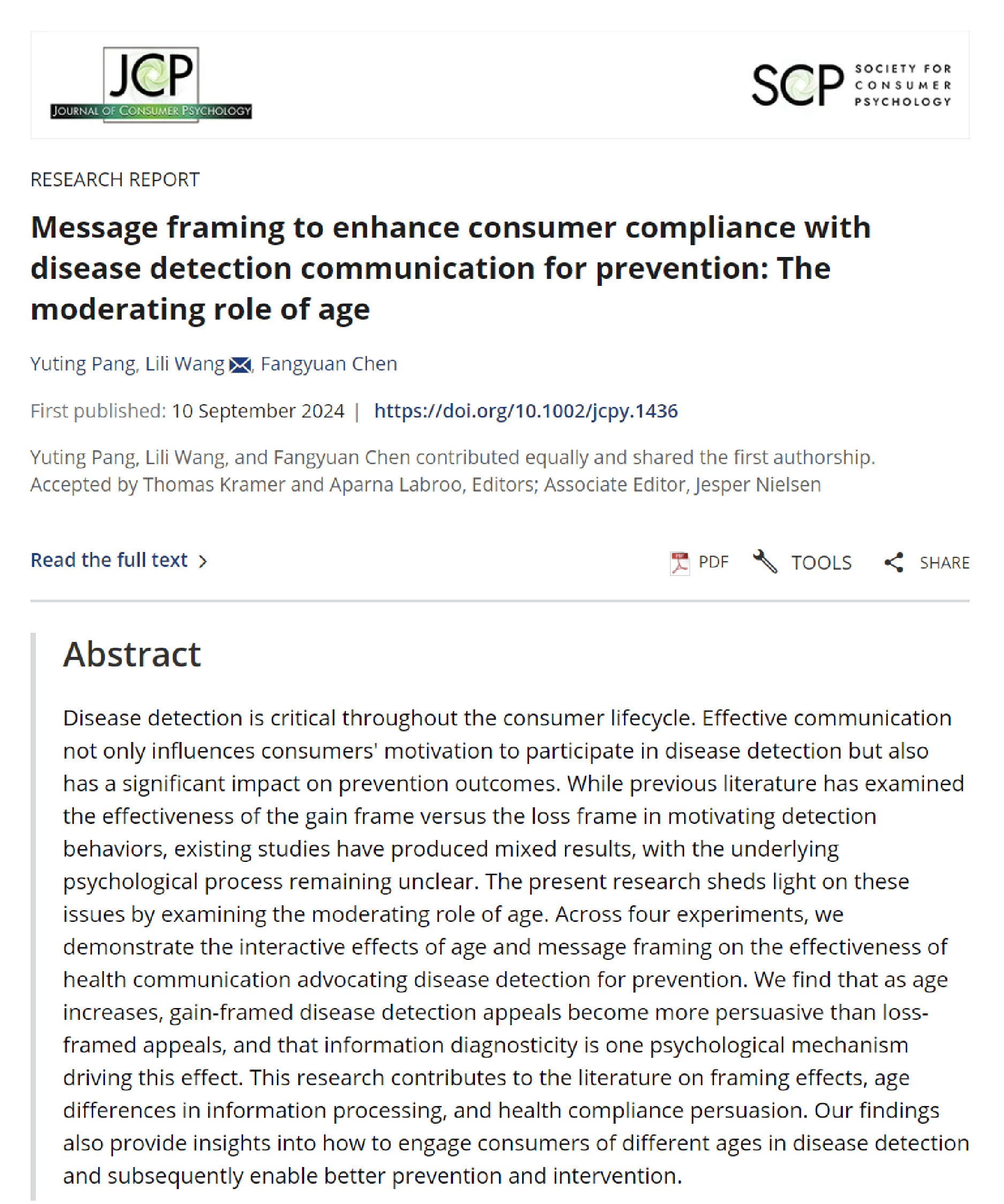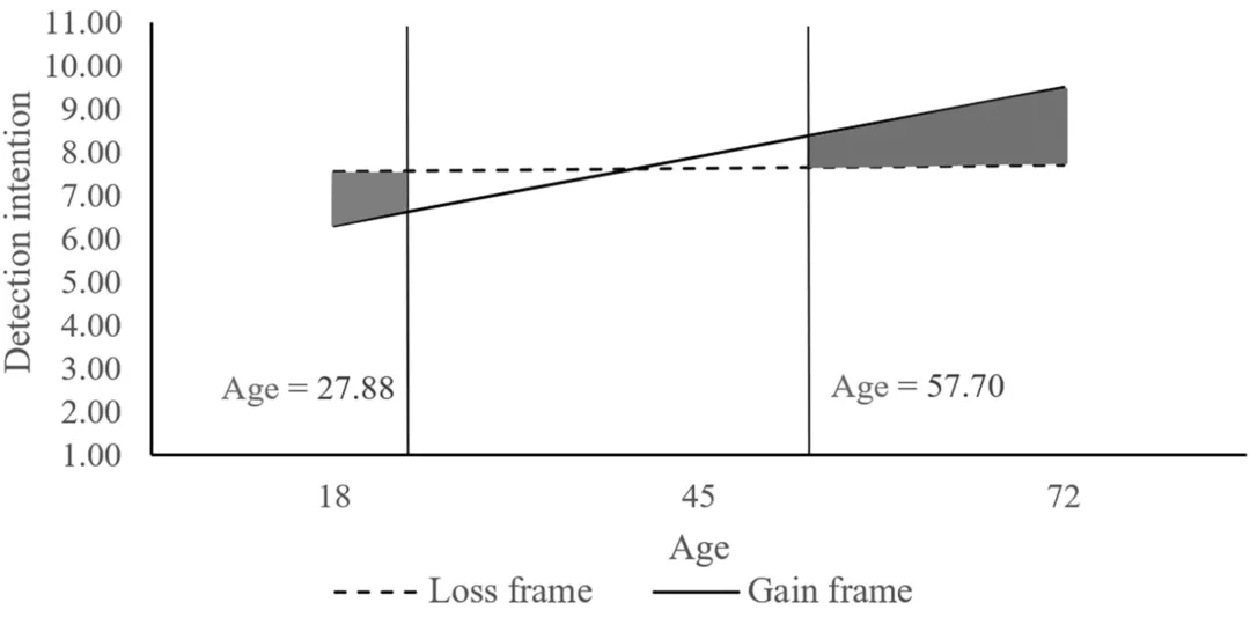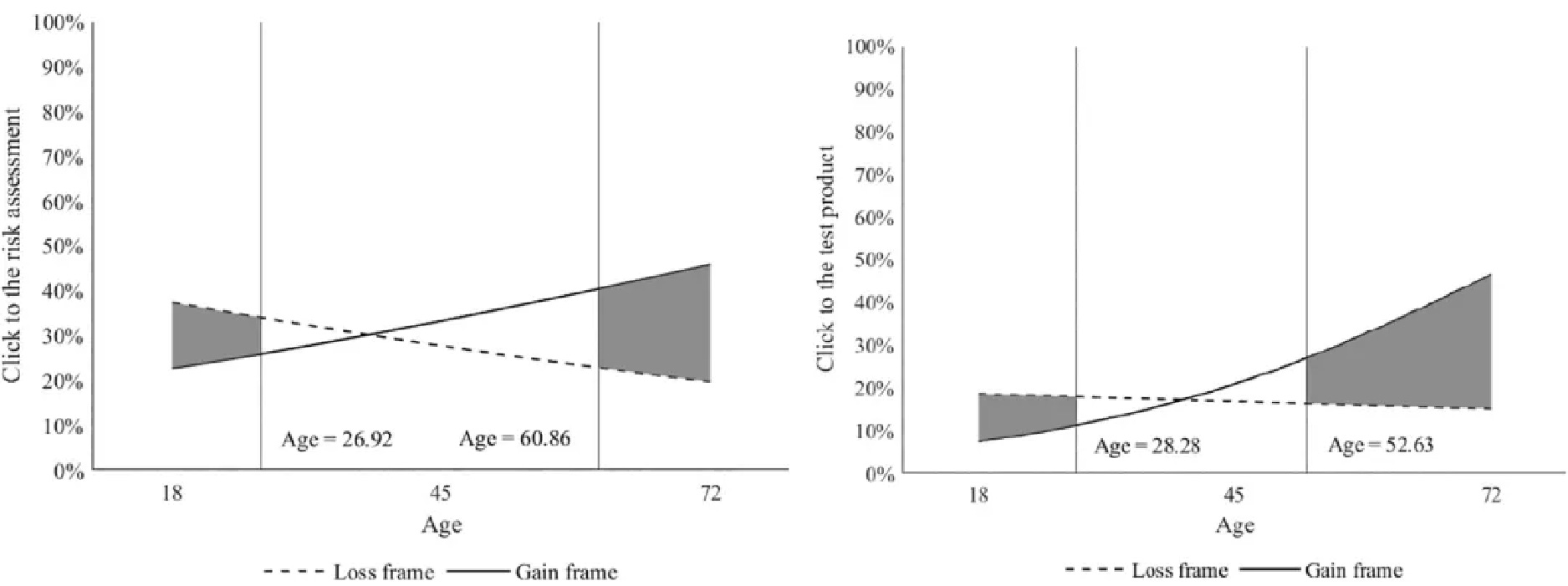
Convincing people to undergo disease screening can often be a challenge. Common responses such as "I know my body, I’m not sick" or "Screening is a waste of money" reflect a general hesitation towards preventive healthcare.
Even after the increased health awareness following the pandemic, many people are reluctant to participate in preventive screenings. This resistance can delay the detection and treatment of chronic diseases, which not only jeopardizes personal health but also puts a strain on public health resources.
How can we convince people of all ages to actively participate in preventive medical check-ups?
To solve these practical problems that endanger lives and the safety of public health, WANG Lili, a professor at the Department of Marketing, School of Management, Zhejiang University, has been trying to find solutions based on the perspective of behavioral nudges through interdisciplinary research on consumer behavior and public health in recent years.

|
Image source: ©千库网 |
On September 10, the team led by Zhejiang University School of Management Professor WANG Lili, her PhD student PANG Yuting, and Macau University Faculty of Business and Management Professor CHEN Fangyuan, an article titled "Message framing to enhance consumer compliance with disease detection communication for prevention: The moderating role of age" was published in the top-ranked international journal Journal of Consumer Psychology (one of the FT50 journals).

Click here to access the journal article
The study showed that "age" has a decisive influence on the promotion of preventive medical check-ups, as it is an important moderator of the effects of information framing.
This means that if you want to promote a preventive check-up or persuade your family to take part in a preventive check-up, you need to choose different approaches depending on age.
|
WANG Lili | 王丽丽 School of Management, Zhejiang University |
||
|
|
||
|
|
|
Academic Background: WANG Lili is a professor, deputy director and doctoral supervisor of the Department of Marketing, School of Management, Zhejiang University. Her research focuses on consumer behavior. In recent years, she has focused on consumer self-control behavior, the impact of product-consumer interaction on consumer behavior, the impact of anthropomorphism on consumer behavior, sharing behavior and service recovery, etc. You can learn more about Prof. WANG Lili’s academic background here |
|
PANG Yuting | 庞雨婷 School of Management, Zhejiang University |
||
|
|
||
|
|
|
Academic Background: PANG Yuting is a PhD candidate in Business Administration at the School of Management, Zhejiang University (a dual degree PhD student at Zhejiang University and Hong Kong Polytechnic University). Her research focuses on consumer behavior, especially consumer health behavior, vulnerable consumers and the impact of social relationships. |
|
Let Seniors Take the Initiative to Attend Check-Ups |
In order to promote the large-scale implementation of disease screening, multiple studies in the past have examined in detail the methods and communication effects of different methods of health advertising, particularly with regard to the information framework of advertising.
The results show that two different information frames are most commonly used: the gain frame and the loss frame.
For example, if we use a benefit frame to promote early detection of diabetes, we could say: “If you detect diabetes early, you have a better chance of getting the disease under control in time.”
If we use a loss frame, this could be formulated as follows: “If you don’t detect diabetes early, your chances of treating the disease in time are reduced.”
Previous studies have shown that these two information frames are effective in getting people to have their health checked. In addition, however, researchers have discovered a key variable that influences the effectiveness of preventive care advertising: "age".

|
Image source: ©千库网 |
|
“ |
We recruited subjects of different age groups and conducted several experiments to investigate their willingness to be screened for various chronic diseases such as diabetes, chronic kidney disease and skin cancer." |
PANG Yuting, PhD student and member of the research team, further explained that they randomly assigned the subjects to "loss information" or "benefit information" and then measured people willingness to be screened or recorded their behavior of "clicking on a link on a website to take a screening test" or "clicking on a link to a health-screening product".
The results showed that with increasing age, those who had read the information were more willing to be screened and more likely to click on the link to participate in a screening test.

Figure 1 | Relationship between screening willingness, information frame and age in the study

Figure 2 | The relationship between screening click behavior, information frame and age in the study
That is, older consumers responded more positively to messages that emphasized the “benefits” of screening (messages based on a benefit frame) than to messages that emphasized the “consequences” of screening (messages based on a loss frame), while the opposite was true for younger consumers.
|
For Seniors, Information Based on A Performance Framework is More “Useful” |
Why is it more convincing for older people to emphasize the potential benefits of early detection of disease? Aren’t they afraid of the risks and harms of delaying screening?
Researchers explain this by noting that as consumers age, they are more inclined to view information based on a benefit framework as diagnostic, meaning older people will find information based on a benefit framework more helpful and useful for decision making.
In the study, they examined the psychological mechanisms behind the different information frames faced by consumers of different age groups and pointed out that changes in the diagnostic of information perceived by consumers of different ages are an important reason for explaining the differences in the effects of information frames.

|
Image source: ©千库网 |
|
01 |
Cognitive abilities decline with age, and older people tend to think more abstractly and at a higher level to compensate for this change. Information based on positive frameworks often involves more abstract processing of benefits and rewards, which is more in line with older people’s cognitive preferences. Similar studies have shown that older people remember positively framed information better than negative information. Neurological studies have also shown that older people have higher activity in the amygdala when confronted with positive images compared to young people, suggesting that they respond more positively to positive stimuli. |
|
02 |
Compared to younger people, older people are more aware of the finite nature of life and therefore tend to focus more on acquiring benefits and positive experiences. Their perception of limited time causes them to prioritize information that is likely to trigger positive emotions, while avoiding information that triggers negative emotions. |
|
03 |
The high diagnostic value of negative information in traditional research findings is partly due to its relative scarcity. Just as the “frequency is information” theory states that rare information is often more diagnostic and influential, in this theoretical framework, positive information is also more diagnostic when it is scarce. |
|
“ |
Since older people are generally exposed to more negative than positive health-related information in their lives than younger people, they consider positive information to be more helpful and diagnostic," the research explains. |

|
Image source: ©千库网 |
|
The Innovative Perspectives and Findings of This Study Will Play an Important Role in "Protecting Lives and Health" |
This study by WANG Lili’s team showed that "age" as an important moderating factor for the communication impact of information frames influences the role of gain and loss frames in health communication. It not only made an important contribution to related research in the field of consumer psychology, but also provided new insights into the theory of information diagnostic by showing that positive information has a higher diagnostic value than negative information in certain situations.
At present, the trend of aging is becoming increasingly evident around the world, and many countries are facing the serious challenges of population aging. According to United Nations projections, the world’s population aged 60 and over will increase significantly, and many developed countries and some developing countries have already entered or are about to enter an aging society.

|
Image source: ©千库网 |
In this context, it is particularly important to encourage older people to have regular check-ups through health communication, as their health risks increase with age. However, the impact of health communication over the years has not been ideal.
According to relevant data, about 10% of the world’s gross domestic product (GDP) is spent on medical expenses annually. A significant portion of this is spent on health communication activities, particularly the promotion of screening, but the communication impact of these promotional activities is less than expected.
|
- We at ZJUSOM thank PhD (c) PANG Yuting, and Professors WANG Lili and CHEN Fangyuan for their invaluable research on the role of behavioral incentives in promoting preventive health screening. The insights gained by the researchers are crucial in addressing the challenges of an aging population and ensuring that more people take proactive steps to protect their health.
- You can read the original article in Chinese here